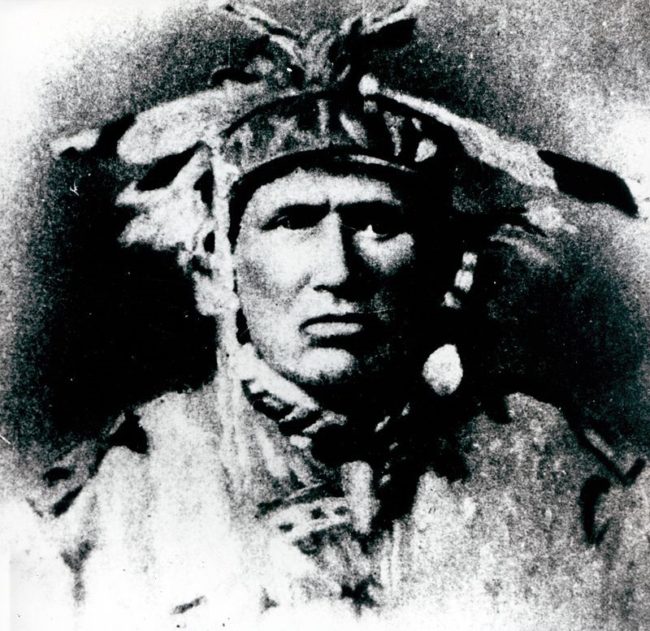Robinson Treaty Annuities Trial hears from Ministry of Northern Development and Mines

By Dorothee Schreiber
SUDBURY – This week the Robinson Huron Treaty Annuities trial heard from Ontario’s “fact witness” Scott Mantle, an accountant who also happens to be the Assistant Deputy Minister of Northern Development and Mines. Mr. Mantle’s evidence is being used by Ontario to bolster its position that the province might have nothing left to share under the Robinson Huron Treaty, if all of Ontario’s money has already been spent on government programming and servicing the debt.
Under cross-examination by Catherine Boies Parker, counsel for the Huron plaintiffs, Mr. Mantle was unsure whether Ontario’s mining industry – the largest in Canada, and generating $10.8 billion in revenue in a single year – provides a net benefit to the provincial economy.
Ms. Boies Parker: “Do you think that mining is a drain on the provincial finances, or is it a contributor to the provincial economy?”
Mr. Mantle: “I don’t know.”
…
Ms. Boies Parker: “Well, why do you go to all the trouble of subsidizing it then?”
Mr. Mantle: “Well, I mean, it’s for the purposes of sustaining it.”
Ms. Boies Parker: “But why, if it’s draining your resources?”
Mr. Mantle: “Again, I don’t know if it’s draining.”
In his testimony, Mr. Mantle focused on the provincial expenditures related to mining, including the cost of regulating the industry and providing the public infrastructure, programs, and services from which the mining industry benefits.
Mr. Mantle’s evidence spoke to the idea that Ontario’s budget is already fully committed, and that any new expense, such as a payment under Treaty, could not be made without incurring a loss. He went on to say that First Nations communities have benefited from general programs in the same way as other individuals and businesses in the Treaty territories.
This claim – that Anishinaabe have benefited from public services in health, education, and justice – became the focus of a brilliant cross-examination by Ms. Boies Parker. She presented the witness with The Journey Together: Ontario’s Commitment to Reconciliation with Indigenous Peoples, as well as excerpts from Volume 5 of the Final Report of the Truth and Reconciliation Commission of Canada. Despite the fact that The Journey Together reflects the official position of the Ontario government on reconciliation, the lawyers for Ontario were reluctant to have it entered into evidence as a numbered exhibit for Ontario.
Ms. Boies Parker took the witness, Mr. Mantle, through sections of The Journey Together and the final report of the TRC, pointing out the ways in which Anishinaabe did not benefit, and in fact suffered great harms, when they attended provincial schools, sought health care, or became involved with the justice system. She highlighted the large disparities in educational and health outcomes between Anishinaabe and non-Indigenous people.
At every turn, Mr. Mantle claimed only vague knowledge and showed limited understanding of the issues put before him. Even after being presented with detailed evidence about Indigenous experiences in education, Mr. Mantle suggested that access to post-secondary education is determined by whether Anishinaabe students have the right to enroll in university. Counsel for Ontario rose several times to say that Mr. Mantle was in court to share his personal knowledge of public finance, and not as a representative of the Ontario government.
But Mr. Mantle’s repeated statements that others may be better suited to answer questions about Indigenous relations did not sit well with Justice Hennessy. It might be normal at a press conference to avoid questions that fall outside of one’s narrow slice of bureaucratic responsibility, but it is not appropriate on the stand, Justice Hennessy pointed out.
“You say,” Justice Hennessy said “that someone’s who’s been the most senior bureaucrat in the Ministry of Northern Development cannot speak to what’s going on in one of the biggest files in the province of Ontario, Indigenous relations, in any way? … It’s almost inconceivable to me in days post the TRC that a senior Ontario bureaucrat in his ministry couldn’t speak to this with some degree of familiarity.”
The cross-examination ended with questions from Harley Schachter, counsel for Red Rock and Whitesand First Nation. Mr. Schachter brought to Mr. Mantle’s attention the Auditor General’s 2015 Report on the Ministry of Northern Development and Mines. That report expressed concern over the small amount of mining taxes and royalties collected from mining companies, averaging less than 2% of the value of minerals extracted.
As Mr. Schachter and counsel for the Huron plaintiffs have argued, what should be shareable under Treaty is not simply a question of what was collected from mining companies, but what should have been collected if the territory had been managed according to Treaty obligations and the honour of the Crown.
Court resumes on March 5th, with testimony from Canada’s witness, Alexander von Gernet. Follow the proceedings on the live stream at: livestream.com/firsttel


